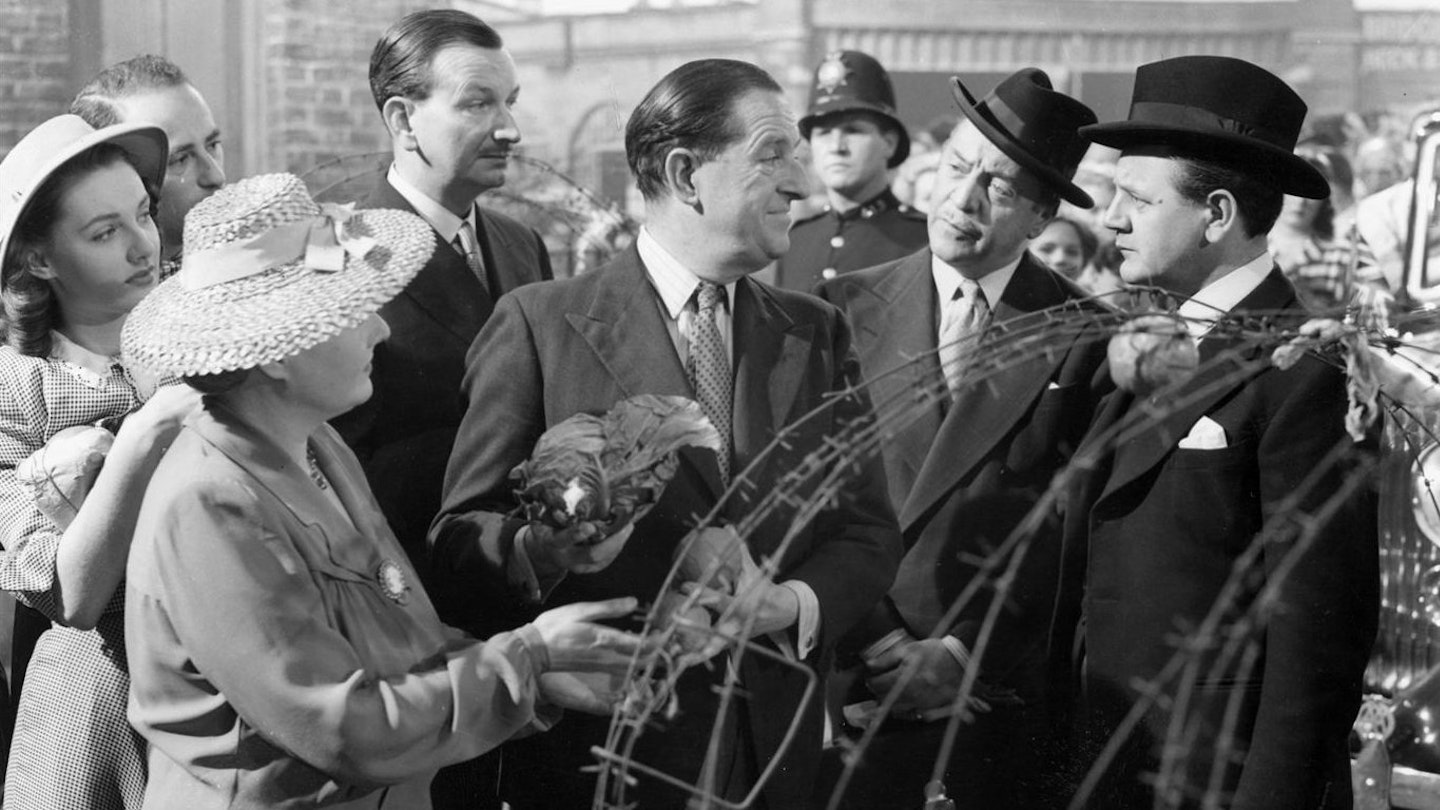Loveably dotty, while still smartly caustic (with a broad political message beneath its sly humour), this is the Ealing ethos at its very best. Indeed, with its communal hi-jinks, rich swathe of eccentric characters, and madly original plot it could be there most complete film. Who else would think up such a neat ploy as this tidy corner of London, populated with salt-of-the-Earth types, declaring themselves independent? It is a comedy about what is means to be British. Arguably, the subject of every single Ealing comedy, but never so piquantly observed as here.
This droll plot efficiently covers a lot of ground and a huge array of well-developed characters (stand out, as ever, is the peerless Margaret Rutherford as the exuberant professor who first spots the contractual clause), hanging on the idea that this wholesome patriotic community are willing enough to turn cheek to the rules if it means an end to rationing, stifling liquor laws, and the opportunity of making a few bob (“We always were English and we'll always be English," demands one upstart resident. "And it’s just because we are English that we're sticking up for our right to be Burgundians!"). The British bureaucrats counter by cutting off the food supply.
Director Henry Cornelius, with T.E.B. Clarke’s extraordinary script (Ealing’s finest), is turning a satirical eye on the our natural tendencies for bureaucracy and boorish nationalism, as well as good old British truculence, yet we still come out of it a stalwart bunch; the fervour of wartime patriotism not entirely dimmed by 1949. Special mention should also go to Lionel Banes’ in situ photography capturing a post-war London, spread wide by bomb damage, rarely seen in the movies.
